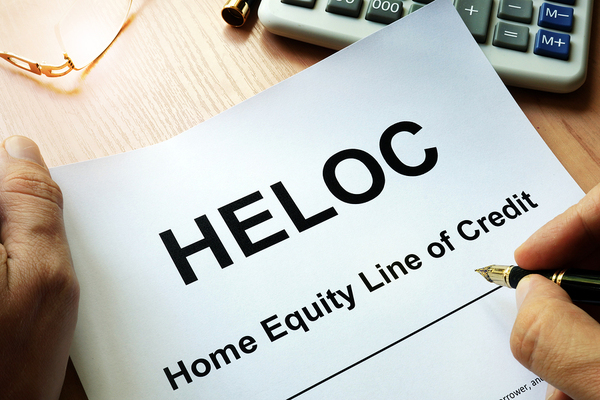View Sale Announcement Detail


Archived news
Excerpt
It looks as if 2018 will not be a great year for home equity loans and home equity lines of credit (HELOCs), for several reasons.
Post
The impact of recent tax laws, as well as the ending of the refi bubble, will likely result in a drop in the volume of home equity loans and home equity lines of credit (HELOCs) during 2018.
 Originations and volumes of HELOCs and home equity loans are expected to drop going forward.
Originations and volumes of HELOCs and home equity loans are expected to drop going forward.
Drops Caused by New Tax Law, Refi Bubble
The Trump Administration’s new tax laws, which were signed in late 2017 and affect 2018 taxes, may lead to a decrease in home equity loans and lines of credit. A survey of lending officials at the recent CBA conference shows that the consensus expects 2018 loan origination volume to sink 5% to 10% due to the tax law change.
They also expect originations to sink very quickly on high loan amounts.
The consensus view was held by more than 58% of respondents. While that may not seem like a high degree of impact, it does signal an erosion of loan volume for HELOCs and home equity loans.
Twenty percent of respondents believe that the erosion will be higher than consensus, impacting loan originations negatively by 10% to 25%. More than 3% feel loan originations will drop more than 25% due to the new tax laws.
More than 18% of respondents expect no impact from the tax law changes.
Another primary reason that there may be a drop in home equity loans and lines of credit is the lack of HELOC refinancings from bubble year end-of-draw expirations (2005-early 2008). The standard 10-year draw periods from these years have expired and HELOC originations fell dramatically in mid-2008 through 2012, then started to inch back up.
 The new tax laws make HELOCs and home equity loans less attractive by eliminating the interest deduction for them.
The new tax laws make HELOCs and home equity loans less attractive by eliminating the interest deduction for them.
Prepays Expected to Rise
But HELOC and home equity loan originations are not the only measure being affected. Prepayments of both types of loans are expected to climb upward as well.
The new tax law makes home equity loans in general less attractive because the deduction for interest on them, capped at $10,000 under the old tax law, no longer exists. While the Trump Administration’s tax law also made home loans somewhat less attractive, by capping the property tax deduction at $10,000 and reducing the mortgage interest deduction (to $750,000 from $1 million), the impact on home equity instruments is greater.
In addition, of course, interest rates have been rising since late 2016. The U.S. Federal Reserve has indicated that it intends to keep hiking rates through at least the rest of this year. Higher rates tend to make all home loans relatively less attractive, including home equity loans.
Despite the signs that home equity loans and lines of credit volumes may decline, the consensus view from the conference is that most lenders have not modified their budgets.
Add Volume via Loan Purchases
One way to mitigate payoffs or add to volume is to buy existing high quality portfolios that have been originated by another financial institution. Bank quality portfolios are available. The quality of the counterparty matters.
Obtain the Aid of a Seasoned Loan Advisor
If the consensus that HELOC and home equity loans will drop in 2018 proves true, many lenders will fall short of their 2018 budget targets. The experienced loan sale advisors at Garnet Capital can help lenders get ahead of the trend by supplementing their organic originations with flow and/or bulk HELOC purchases.
There is no time like the present to consider which of your clients might be reasonable buy and sell candidates.
Browse our white papers today for more information.
Garnet Capital Advisors 500
Mamaroneck Avenue, Harrison, NY 10528
(914) 909-1000
info@garnetcapital.comGarnet Capital Advisors 500
Mamaroneck Avenue, Harrison,
NY 10528
(914) 909-1000